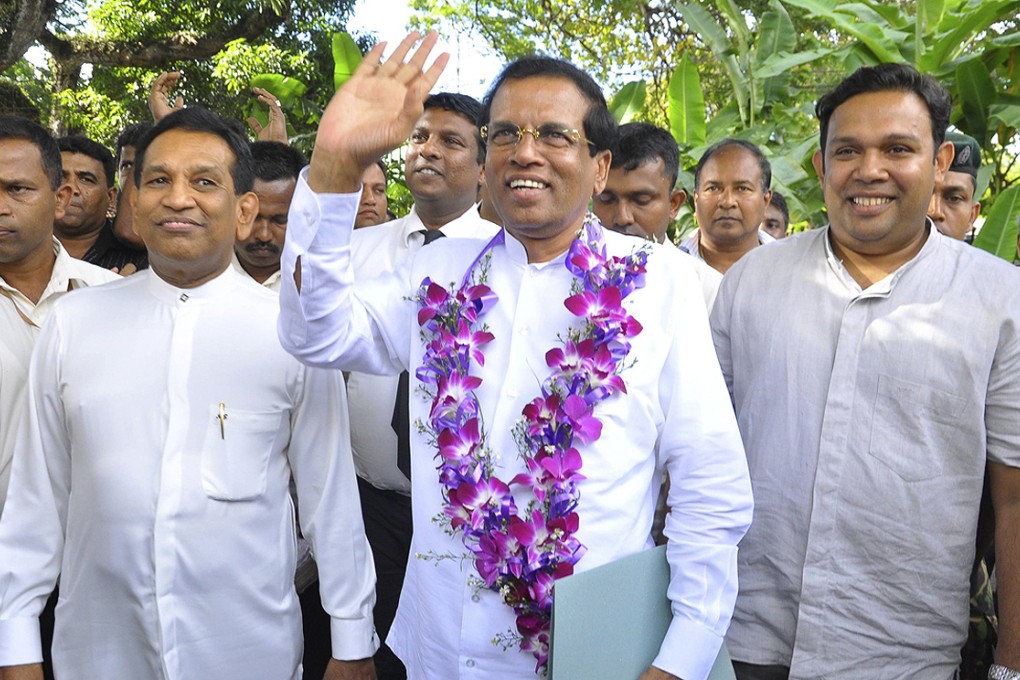Sri Lanka ruling party in purge ahead of snap polls
President Mahinda Rajapaksa faces unexpected challenge from former health minister Maithripala Sirisena in election called two years early

Sri Lanka’s ruling party was set for a purge on Saturday after a senior minister declared he was challenging President Mahinda Rajapaksa in snap elections called for January.
Rajapaksa’s Sri Lanka Freedom Party (SLFP) suspended members who pledged support to health minister Maithripala Sirisena who on Friday defected and became the main opposition leader to run against the president.
The five senior party members, including Sirisena, the long-standing general secretary of the SLFP, were stripped of their posts, the government information department said.
“About a dozen MPs [in the SLFP] have been identified as potential defectors,” an official close to President Rajapaksa said, asking not to be named. “Action will be taken against them,” he added.
But to kick out the dissidents, they will have to be formally expelled from the ruling party.
The official said a new party general secretary had been appointed and changes were being made at the regional level to repair damage caused by the dissidents to the party’s operations.